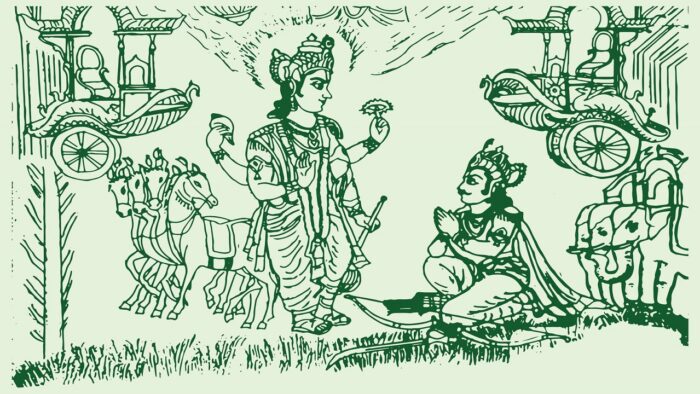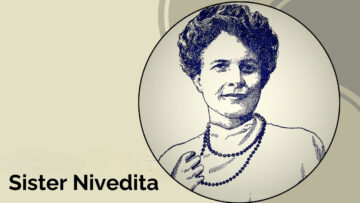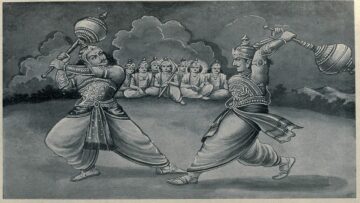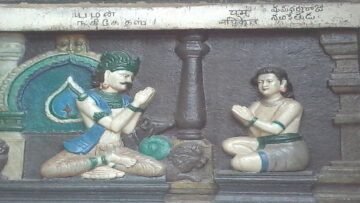History is one of the most vilified branches of studies today. The origin of this field & what it was originally intended for is not the highlight here. Because I am writing this in English, I have no choice but to use these words just like we use terms like Epistemology & Ontology while discussing our Darshanas.
They are not an accurate representation of our thought but merely to communicate an idea in this language. So in this case too History merely refers to ‘knowledge of the past’ as is common to everywhere in the world without being bound by the technical terminology.
If you are even remotely interested in History, you will have to up your guard a bit because not only will you be ridiculed for being interested in knowing the past but you will be assured that you and your pursuits are worthless & a sheer burden on everyone (for bringing up the issue).
For instance, if you are a devotee of Shankara & curious to know from where he hailed & in what period of time, under what circumstances, how did he accomplish various deeds, you will be beaten down with a hammer for not focusing on what he has to say & worrying about all other things.
What will you do with that information? – is the compelling question you will be asked but not expected to answer. Because no matter what you say, when it is predetermined, already declared that it is futile, then your answer doesn’t matter. ‘If it’s not important to me, then it’s not important to anyone’ is the elitism that is plaguing us.
For an unrelenting aspirant of History though, Vyasa is the sole refuge. Because in spite of 1000s of years being erased from the timeline of Bharatiya itihasa, Vyasa’s Mahabharata & Puranas quench our thirst for knowledge of the past. It is an amazing literary evidence unrivalled by any other.
However, according to few, literary evidence is insufficient & even worthless. Like gatekeepers demanding identity, the same old demands of archaeology, corroboration, etc.. So in effect, you have no right to talk about History until you have dug up something from the ground or accept what is being told to you.
Such a claim is with so much conviction on the archaeological method that they implicitly believe that to be flawless – that too by taking into account the derived hypothesis of some archaeologists as if it were a fact. Archaeology as a branch is related but not part of the branch of History. It is another aspect of History but history can be gleaned even without archaeological evidence. The overemphasis on archaeology and its methods which are imprecise is just absurd.
Many of the archaeological methods used to determine the age of artifacts are now obsolete. Even methods like radiocarbon dating are NOT FLAWLESS. It is not an undisputed pramana. This is without even taking into account the flaws of archaeologists themselves. With the same set of data, it is likely that no two persons will arrive at the same conclusion. A consensus too is dependent on various other variables.
As long as we prostrate to those whom we perceive to be superior, of a higher rank & look down upon those who we perceive are inferior to us, reasoning, methodology, framework all be damned!
Now what is a framework? One can try to interpret history through a Vedic framework or a non-vedic framework. If we interpret through Vedic framework, then we have to understand concepts like Anadi, the cosmology according to the Vedas, the causation, the law of causation, etc.
For example, in the Mahabharata, we have an instance where Arjuna goes to Swarga, spends some time there, learns new things & comes back. There are creatures like Rakshasas, Asuras, Devas, Kinnaras etc. Arjuna has a conversation with a Gandharva. All of this can’t be explained in a non-vedic framework.
For our Vedic Itihasa to be true, should it conform to non-vedic framework to gain legitimacy? Once these texts are taken out of their Vedic framework, at that very moment, it will lose legitimacy & implicitly assumes the legitimacy of non-vedic framework. Hence, the Vedic framework can never be replaced by non-vedic framework.
If we take non-vedic framework as the basis to interpret the Bharatiya itihasa, then the Mahabharata or Purana will be useless because there is no methodology that can be applied to interpret our history using these texts under this framework. No matter how rigorous it is, it will be a futile exercise because it will all be a conjecture. Moreover, the source of these texts themselves is a strong Vedic framework.
The objective of academic pursuit is clarity and not confusion. Hence there is no point in dragging down our literary sources into such a framework & studying them because it will only create useless theories. However, it will be extremely beneficial for propagandists because you can explain it the way you want using jargon & convoluted logic.
However, archaeological sites don’t fall under any framework. In this field, the accuracy of the method is alone enough to arrive at a conclusion. However, this field itself cannot ever give accurate data. Even if one finds an inscription, should that be considered as literary evidence or archaeological evidence?
Further, literary evidences like Puranas gain legitimacy under the Vedic framework because of the faith in the words of the Rishis like Vyasa. However, something scribbled on a wall cannot be a substitute nor can it supplement the proper literary evidence. It will gain legitimacy only against the vast literary evidence.
However, what supplements a literary work is the oral tradition transmitted from generation to generation. This is exactly why narratives become so important & if the oral tradition or our outlook degenerates, the literary evidence starts to corrode and diminish in its value. Let us take an example: We have the Ramayana to which all Bharatiyas are devoted to. Even if you have never read the Ramayana, I bet you know the crux of the story. Why? Because, that has percolated into the psyche of our collective societal structure, our civilization. The devotion is strengthened by conviction, not by confusion. If the society was not convinced of the legitimacy of Ramayana, there would have been no explanation for such a devoted telling and retelling of the story from Yugas and Yugas.
On the other hand, someone analyzing Ramayana will have enough data points to arrive at a reasonable conclusion based on oral traditions. In some rare cases, when the literary sources are lost forever, the oral traditions may still remain! On the flip side, when society forgets a legend, it can be found in some long lost manuscripts. Hence these two supplement each other & enhance the greatness of collective historical & civilizations conscience.
In the Vedic framework, we know from the Puranas that some rare, fortunate person would know about the past from the Rishis who had a divine vision. Due to the purity of their Antahkarana, the limiting adjunct that is applicable to ordinary humans like us is not applicable to the Rishis. Hence also, Krishna talks about the past that was unknown even to Arjuna.
Hence, one cannot dismiss these as fanciful without understanding the Vedic concepts of Antahkarana shuddhi & the unobstructed knowledge of the Rishis. Under Vedic framework, it makes perfect sense because the explanations to these concepts are neither flawed nor far-fetched. It simply adheres to a framework. Just as we should understand the concepts of Physics to better understand the world around us, we need to take into account the underlying Vedic concepts to understand the legitimacy of the medium.
Essentially, the knowledge of the past is a privilege because no one wants to know what the ancients had for their breakfast on some random day. The knowledge of the past is the knowledge of the creation, its mysteries, its cause. From the time of creation till now, what is the course taken by humanity, where are we headed toward? All this is not appealing to those who do not have an aptitude for such things.
Hence, it is Vyasa alone who can revive our Bharatiya itihasa in my view. Even if we want to reject things like heaven or gods or karma, we can still refer to Vedic literature for limited conclusions that are more accurate than the best methodology employed in a non vedic framework. Vedic framework yields the best result for even post Mahabharata history, primarily because the Puranas and the Puranic tradition act as the anchor, or as the Himavat that we can use as a pointer.
In Ramavatara, Rama caused the destruction of Rakshasas like Ravana who were fierce & violent. In the Krishnavatara, Krishna annihilated Asuras & Asuric kings like Kamsa. In the Vyasavatara, the intelligent Vyasa has destroyed the intellectual darkness that has enveloped this age. The more we are devoted to Vyasa, the more clearly we can see.
Whilst Rama & Krishna were in the past, Vyasa’s grace & intelligence can be perceived even now. Some say that Santana or one’s progeny need not be limited to children. Even literary works are a Santana, a progeny of the Rishis. Hence Vyasa’s works not only dispel the darkness of the past but our future too.
Image credit: picxy.com
Disclaimer: The opinions expressed in this article belong to the author. Indic Today is neither responsible nor liable for the accuracy, completeness, suitability, or validity of any information in the article.










